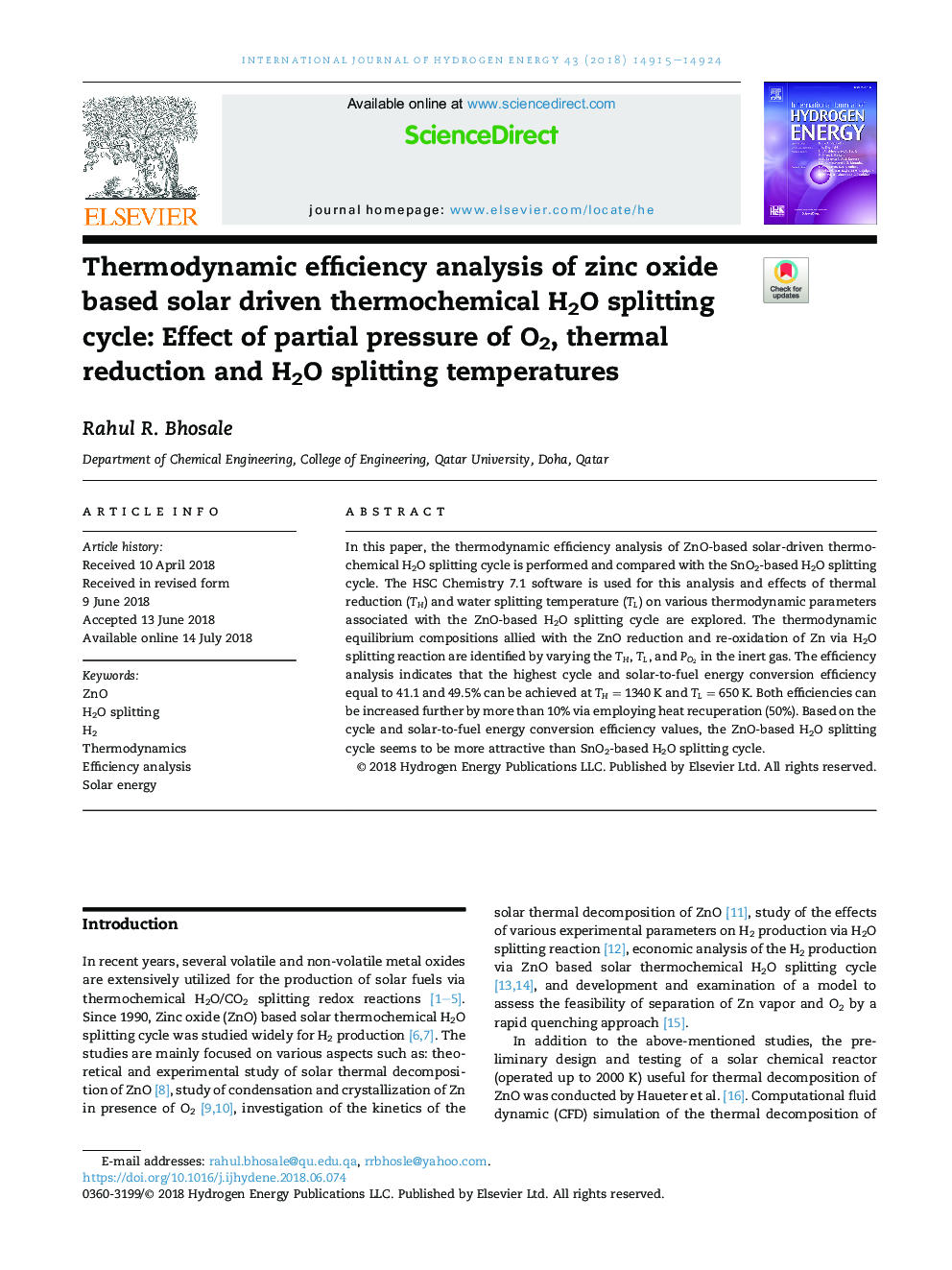| Article ID | Journal | Published Year | Pages | File Type |
|---|---|---|---|---|
| 7705246 | International Journal of Hydrogen Energy | 2018 | 10 Pages |
Abstract
In this paper, the thermodynamic efficiency analysis of ZnO-based solar-driven thermochemical H2O splitting cycle is performed and compared with the SnO2-based H2O splitting cycle. The HSC Chemistry 7.1 software is used for this analysis and effects of thermal reduction (TH) and water splitting temperature (TL) on various thermodynamic parameters associated with the ZnO-based H2O splitting cycle are explored. The thermodynamic equilibrium compositions allied with the ZnO reduction and re-oxidation of Zn via H2O splitting reaction are identified by varying the TH, TL, and PO2 in the inert gas. The efficiency analysis indicates that the highest cycle and solar-to-fuel energy conversion efficiency equal to 41.1 and 49.5% can be achieved at THÂ =Â 1340Â K and TLÂ =Â 650Â K. Both efficiencies can be increased further by more than 10% via employing heat recuperation (50%). Based on the cycle and solar-to-fuel energy conversion efficiency values, the ZnO-based H2O splitting cycle seems to be more attractive than SnO2-based H2O splitting cycle.
Related Topics
Physical Sciences and Engineering
Chemistry
Electrochemistry
Authors
Rahul R. Bhosale,
